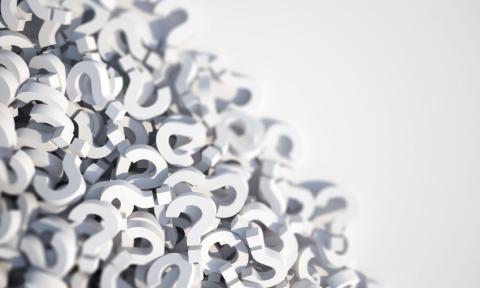How could I call myself female despite the contrary evidence? Of course, emotion played a part in my being transgender: the kind compliment “You are a very nice man,” was anguish because my acquaintance had called me a man, and showering made me want to cry because my body looked so wrong. But for me, a surprisingly large part of the process of transition from male to female was intellectual.
Realizing that I had a medical condition, and allowing doctors to help me, came slowly. My wish to be female was intense and enduring, starting with my early childhood preference for girl’s toys, later and forever aching for female puberty, and then knowing better than to share that my reaction to first seeing a picture of a naked lady was “I want to look like that.” (“Photoshop” and “misogyny” had not yet entered my working vocabulary). But I wasn’t delusional about why my birth certificate said “M” rather than the coveted “F”, and I knew that wanting something didn’t make it so.
Partial self-acceptance came slowly. In my teens I confided in a female friend who gave me a bra. Wearing it when I could, and her acceptance, was helpful, but although I wanted to be allowed to wear female clothes—there was a reason I didn’t go to my high school prom—I already knew that I’d rather be a woman wearing a boring t-shirt and boyfriend jeans than be a man wearing a dress. Reading memoirs of transsexual women who bravely had gender change surgery resonated: Christine Jorgensen was a soldier, and Renee Richards was a doctor. However, this validation was tempered by my father referring to transgender as “a disease.”
But that couldn’t be me, could it?
The first crack in my close-mindedness came when a woman looked me in the eye and asked, “How do you know that I am a woman?”
Her question helped me because it made me realize that I make gender determinations without seeing the person’s genitalia.
Later, a friend tried to assuage another fear about transgender surgery being illegitimate. “It’s not cosmetic, it’s considered ‘medical necessity’ now.” What? I attended a public talk by Dr. Katherine Rachlin, a research psychologist specializing in transgender issues. I nervously raised my hand and asked her about this. Her answer was kind but firm: “The medical community now realizes that transgender surgery decreases suicides. Any surgery that saves lives is medically necessary.” This dovetailed with my experience, and gave gender surgery a moral legitimacy to me.
My misery can be understood with this experiment: How would it feel if people referred to you with the wrong pronouns, every day? This is gender identity –the sense of self as male or female. My final doubts about the legitimacy of transgender surgery were relieved when I was browsing in a bookstore and stumbled upon a new book suggesting that most scientists felt that gender identity is at least significantly influenced by physiology, probably in utero, even when that identity doesn’t match the body. The licensed psychologists I spoke with agreed. Of course, there is a simpler reason to think this is true. Would a million dollars be enough to persuade you to have your own sex change operation?
With logical, moral, and scientific concerns alleviated, and decades of deepening gender sadness, my path became clear. Slowly shifting my appearance to female inspired people to begin referring to me with feminine pronouns, encouraging me. I consulted with licensed clinical psychologists and found supportive doctors. With their help I legally changed my name and gender. With each step of “transition” to living as a woman, my depression declined and my concentration improved. Over time I achieved a more feminine body via medically supervised estrogen intake and, once insurance covered it, gender confirmation surgery.
Like any prescription, medical treatment, or surgery, the risks and pains are not worth it unless they are absolutely necessary: early in transition, I glanced in the bathroom mirror, and noticed that my chest was beginning to grow in a feminine way. I was surprised by how profound my relief was. Years later, after recovery from surgery, I could finally shower without wanting to burst into tears. That is basically all that surgery did, but that was a lot.
I did suffer one surprising emotional loss: I was disinvited from the wedding of a friend of two decades because “your being transgender might make my guests uncomfortable.” It ended our friendship, and I feel sorry for him. I have more respect for the friend who said, “Michelle, I can’t fully support what you’ve done, but I value your friendship and don’t want to be a religious bigot, so I’ve changed your name in my address book and won’t mention my hesitations again.” He kept his word, and we remain friends.
I also experience inconveniences my female friends sympathize with: I’m sometimes flirted with uncomfortably, and am occasionally talked down to in ways that I never was as a man. While other aspects of my experience are different from that of many women, any woman’s experience differs from any other woman’s based on race, income, (dis)ability, or other factors. I’m a woman not because I (thankfully, now) lack a penis, nor even just because other people greet me with female pronouns. Although morality, logic, and science all support my gender, I’m a woman fundamentally because it is in my heart and soul, and always has been. To quote a song by Lady Gaga: “I was born this way!”


